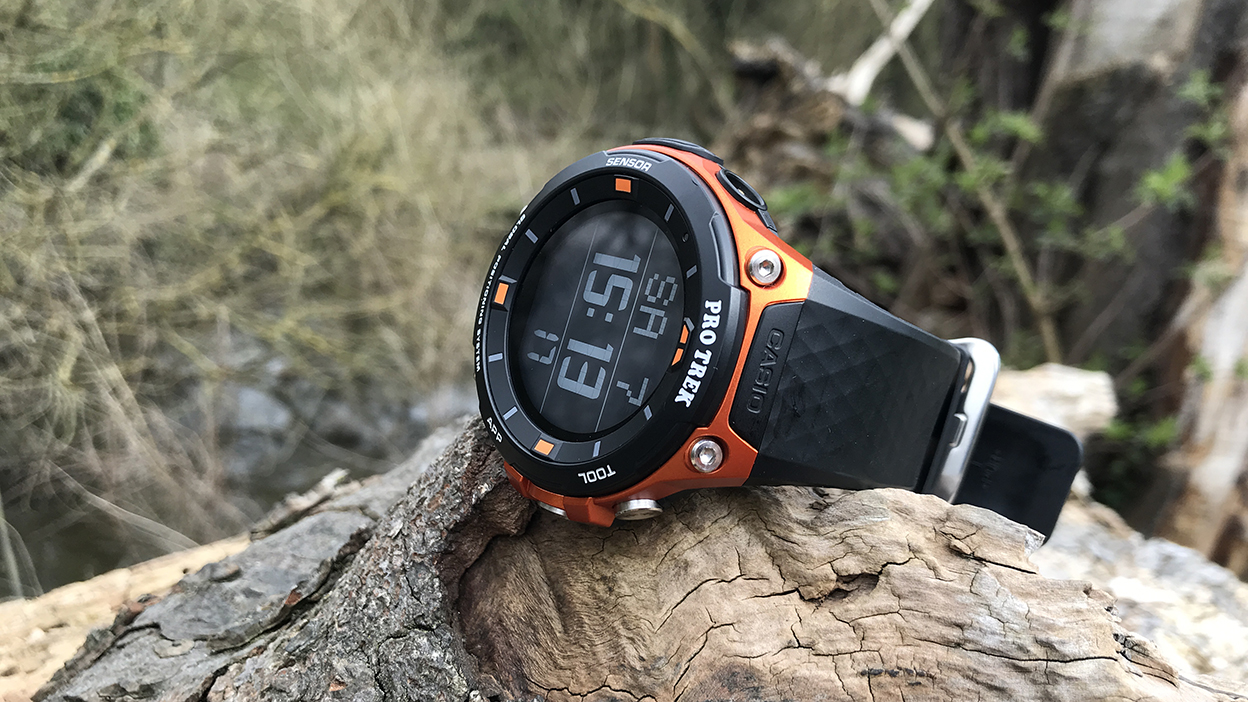Why you can trust TechRadar
GPS, maps and tracking
- GPS, GLONASS and QZSS
- Supports offline maps
- Digital compass
An outdoor watch without good GPS isn’t a good outdoor watch. Luckily the Casio Pro Trek Smart performs well here. In addition to standard GPS there’s also GLONASS and QZSS, another satellite system that should improve the tracking should your adventures take you to Australia, Japan, Singapore and other parts of the world.
We found it quick to lock GPS (though we didn’t get to test it in Tokyo sadly) and overall the accuracy was solid. You can also use the apps on the watch to tweak the level of accuracy and frequency of calls to the satellites, to conserve battery. Useful if you’re hiking and you don’t need up-to-the-second read outs.
In the event you do lose GPS, really useful offline color maps let you navigate even when you’re out of signal. They were a little tricky to read on the small screen but to be fair to Casio, this is more a problem of the watch form factor over a phone or a dedicated GPS device rather than a Pro Trek Smart specific bugbear.
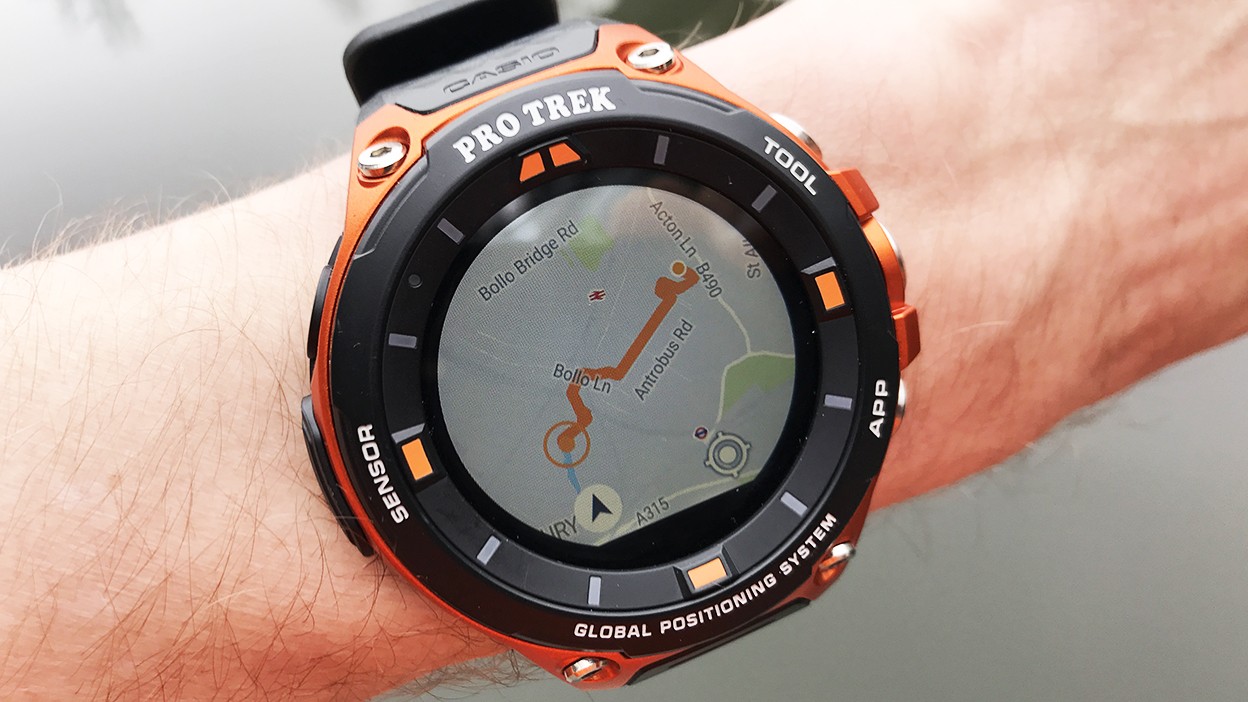
Casio's Location Memory app also saves the track you've taken and can be summoned to show you where you are at any time instantly with a single button tap.
The list of pre-loaded activities you can track using the GPS and other sensors feels a little bit limited. There’s trekking, skiing, canoeing and cycling – all fairly obvious – but including fishing over running and swimming is a bizarre choice.
If you want to track running, you’ll need to download one of the familiar running apps from the Google Play store. Though we doubt you’ll really want to run with this hulk strapped to your wrist.
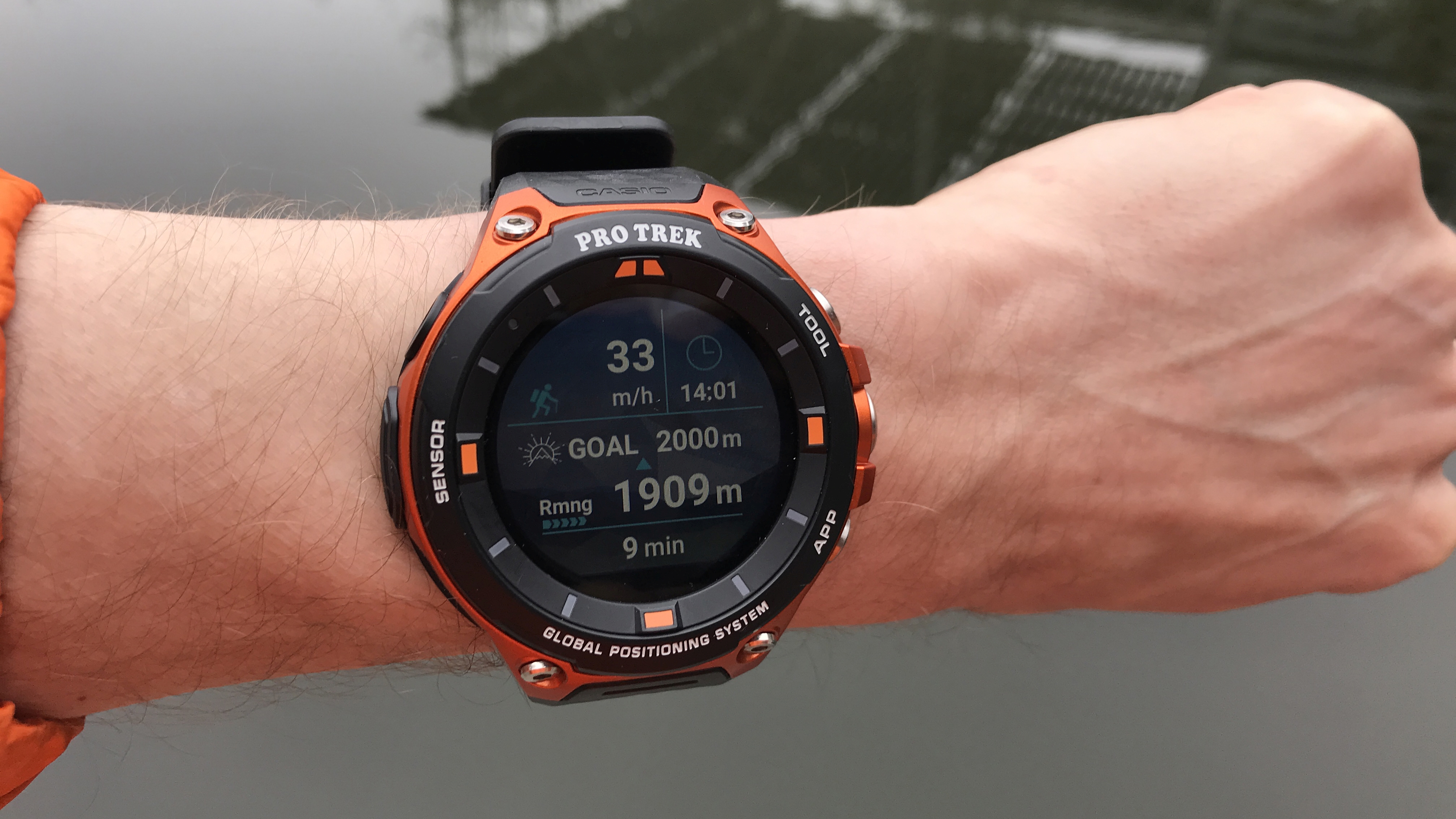
Another huge oversight is that post activity tracking data isn’t stored anywhere for review after an initial notification. So you can’t review what you’ve done over time on the watch.
Sign up for breaking news, reviews, opinion, top tech deals, and more.
One trick we thought was great was the ability to mark and store places of interest by dropping pins, in the Location Memory feature. Partly because this is great for logging excellent things you’ve come across while exploring but mainly because you can also assign an emoji, so you can remember all the smiley face places you’ve been.
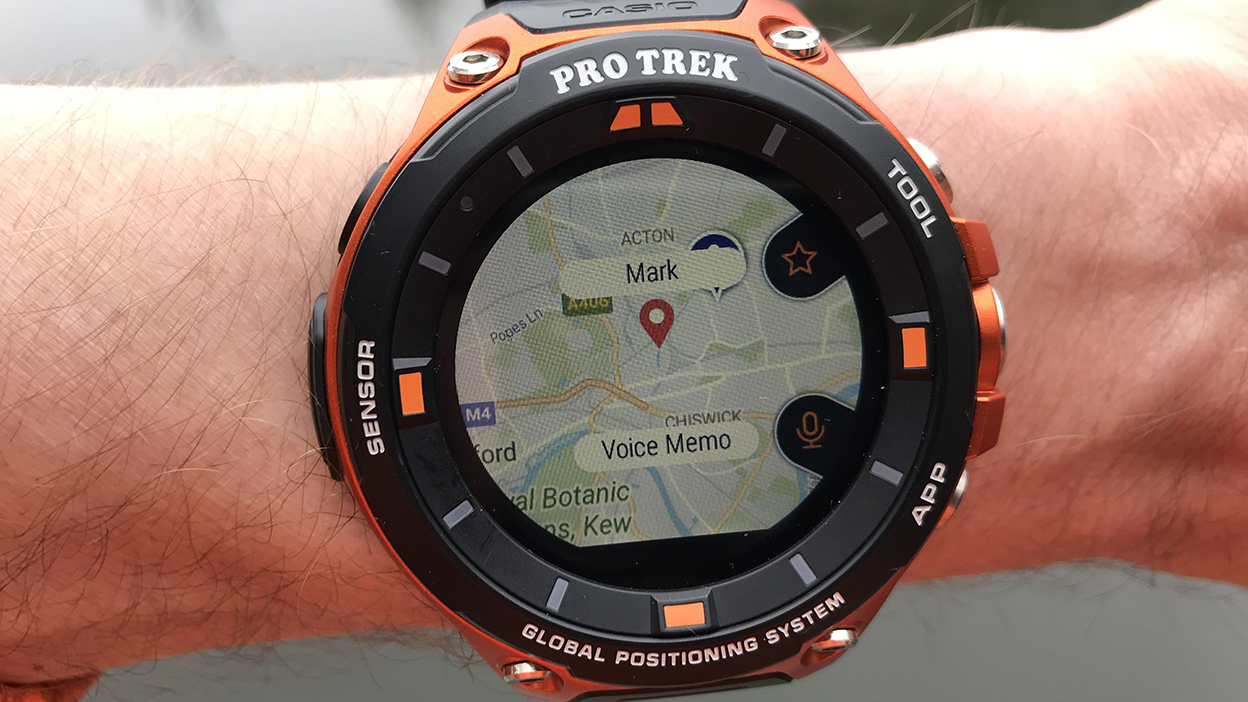
Interface and features
- Google Fit for general activity
- Moment Setter+ customized sport alerts
We’re not going to go into detail on all the features of Wear OS, that’s what this handy Android Wear guide is for but recent updates to Wear OS mean you can download apps straight to the watch and do things like access Google Assistant from the Pro Trek Smart.
Needless to say, you can also make the most of apps such as Google Fit for most general activity and fitness tracking such as step counting, and add other third-party apps to boost your Pro Trek Smart's skills.
We tested it with iOS and Android devices and though it plays nice with iOS, you get a smoother experience on Android. Shocker.
The watch face is customizable with a simple swipe left from the home screen and there are plenty to choose from. A swipe up from the bottom brings up your latest notifications from your connected apps.
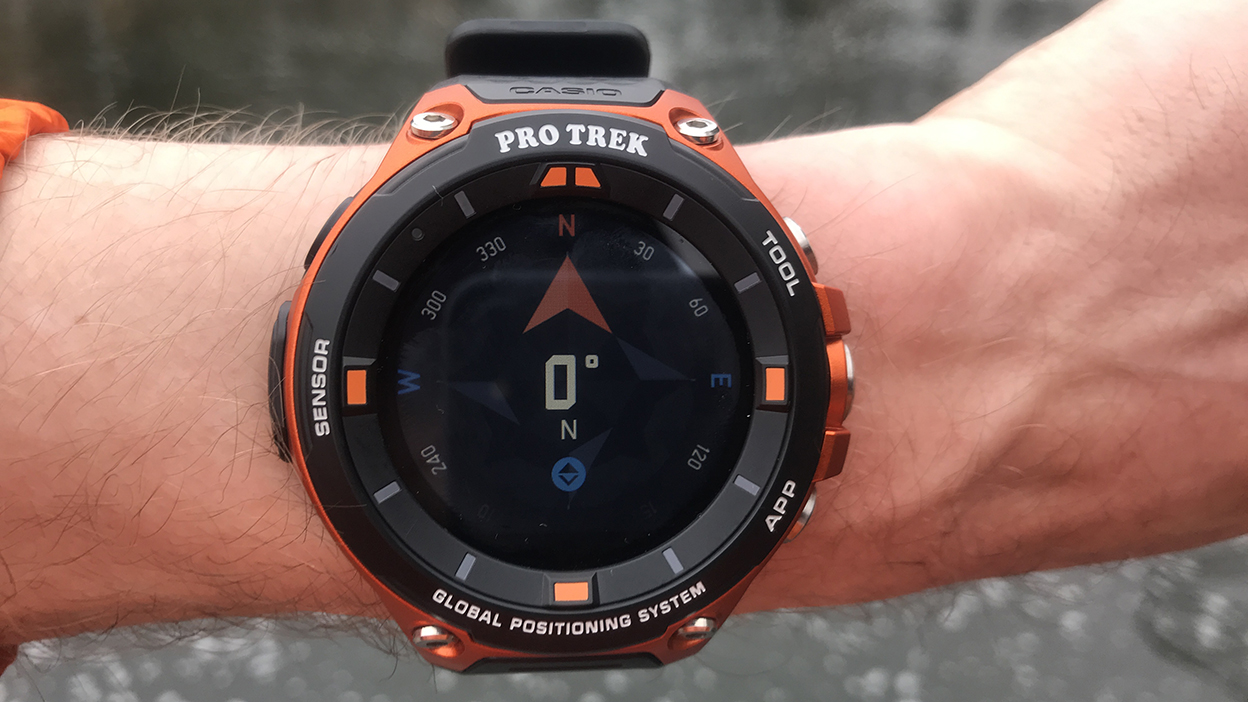
Hit the Tool button and you unlock all of the Casio Pro Trek Smart's sensor-powered insights including compass, altitude and air pressure. Plus tide graphs and sunrise/sunset info based on your current location. We tested the sunset (sorry, we weren’t up early enough to do sunrise) in an urban and rural location and it was spot on.
A tap of the App button loads up your map showing your current location, with the ability to search and add location specific notes. You can also see your location History here.
Another of the noteworthy features is Moment Setter+. This lets you assign specific notifications and actions for different activities. For example, every time you’ve cycled 5km, you can get a map to pop up on screen showing your distance traveled. Or you can set the screen to display your current altitude when you stop during a trek.
For those tackling endurance events you can even get the Pro Trek Smart to remind you to rehydrate or refuel every time you burn a set number of calories. All very useful indeed and again, something we’d like to see in regular running and cycling watches.
Battery life
- Around a day of life with mixed use
- Awkward, bulky charger
Casio doesn’t give out any official info on the capacity of the battery inside the Pro Trek Smart WSD-F20, but it does suggest you can get a day’s usage out of it, depending of course on what features you’re using and how much GPS tracking you’re doing.
In our tests, where we took the Pro Trek Smart off charge at around 8am and put it through an average day’s usage with an hour to an hour and a half’s GPS trekking tracking, we just about managed to get a full day.
With some tweaking of settings, for example flicking the display to monochrome mode, or reducing the GPS accuracy, it is possible to extend the life and eke out a little more than a day.
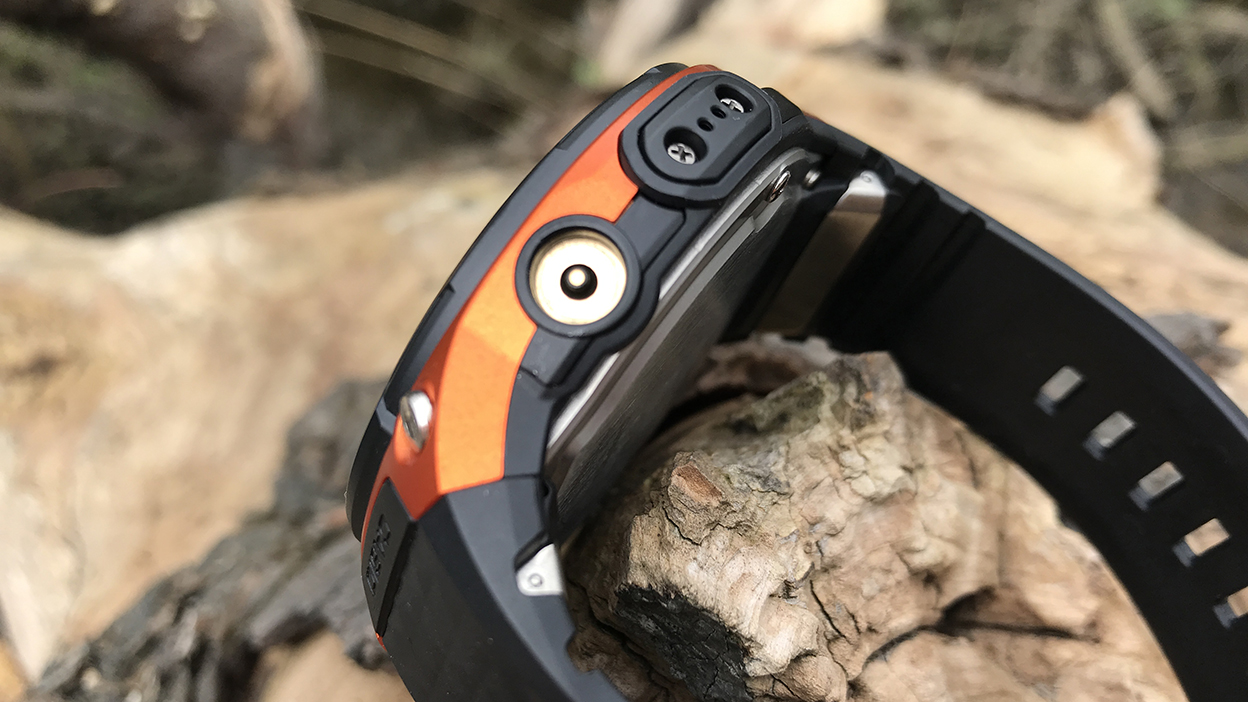
What it won’t do though is let you track GPS for hours and hours on end and that’s a potential drawback if you’re looking to buy this for day-long or multi-day hikes where you might not want to carry the weighty charger pack.
Speaking of which, when it comes to charging, not only does the Casio have the bulkiest plug we’ve seen on a watch charger for quite a while, but the power cord also docks onto the watch with a magnet clip that’s, well, not very magnetic and falls out at the slightest touch.
It’s actually really hard to get the cable to stay put and often we came back to find it had fallen out. This alone is enough to put us off buying the Casio Pro Trek Smart.
Current page: Maps, tracking, interface and battery life
Prev Page Introduction, design and screen Next Page Verdict and competition